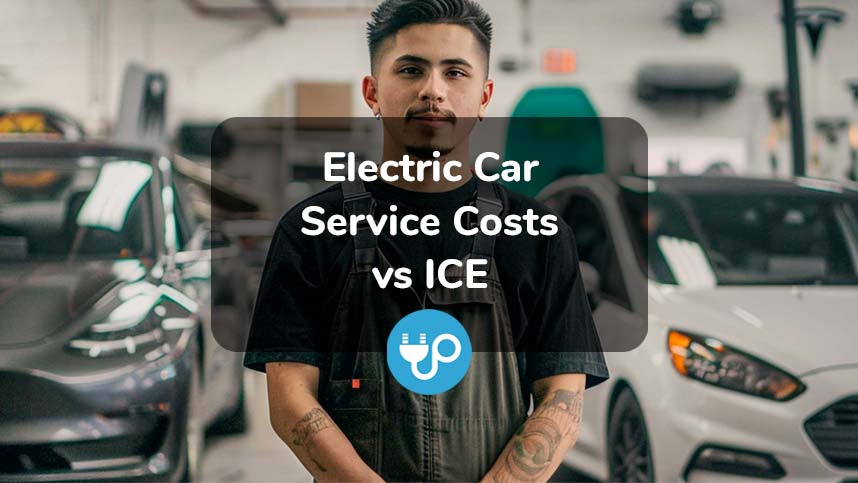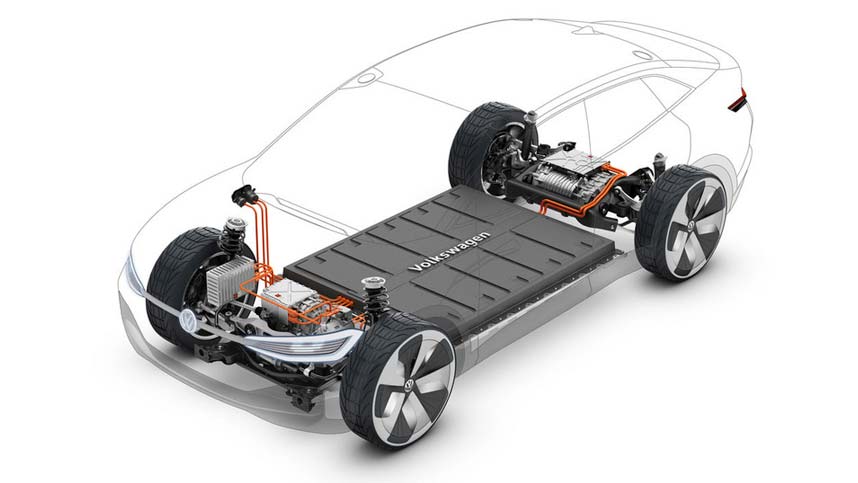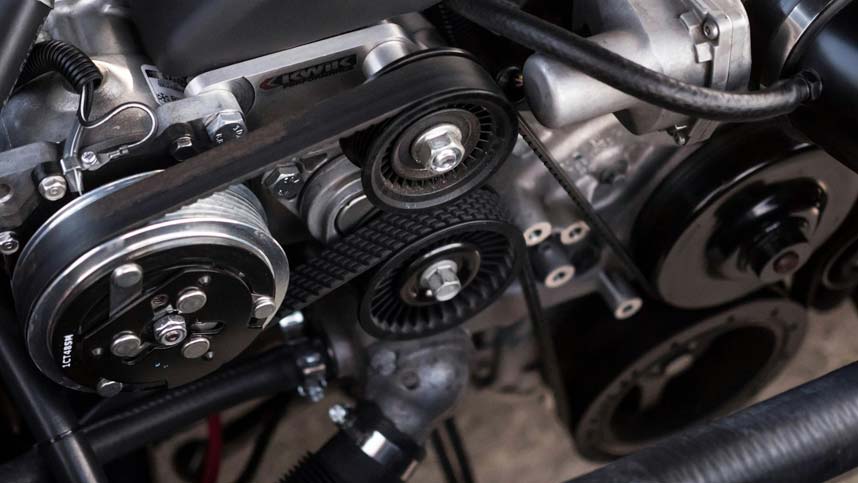
Electric Car Service Costs vs ICE
As with ICE (internal combustion engine) vehicles, it is recommended that electric vehicles are serviced at least once a year.
Apart from ensuring the vehicle is appropriately maintained and in the best possible condition, this will also help you save money in the long run, and increase its resale value.
Chapters
How Much Does an Electric Car Service Cost?
There is the misconception that servicing an electric car is more costly than servicing an ICE car.
However, this is actually not the case.
On average, an electric car service cost is typically between £100 and £250.
This will vary depending on the make and model of electric car you have.
It will also depend on where you live and the labour costs of the garage in question.
How difficult it is to maintain a machine is generally directly proportional to the amount of moving parts involved.
Electric drive trains are considerably simpler than those in an internal combustion engine, and as a result the maintenance is easier and cheaper.
EV vs ICE Service: Which Costs More?
Without doubt, an electric car service costs less than an ICE car service.
To give you an idea, an electric car service will generally cost around £105, whereas a petrol car service tends to be around £150, and a diesel car service usually costs around £165.
If you were to consider the overall average maintenance bills of an electric car, including the MOT tests, servicing and basic repairs, you will find that this will probably cost around 43% less than for ICEs.
This figure emerged from average values of bookings made through BookMyGarage over one year, hence it is quite realistic.
One thing you will need to consider is that you may have to travel further to find a garage that offers electric car servicing.
This is because only a small percentage of UK mechanics are qualified to carry out such servicing.
Alternatively, you could use a mobile EV servicing provider such as Cleevely Mobile who will come to your home and service your car on our own driveway!
What’s Included in an Electric Car Service?
During an electric car service the mechanic will have a lot less things to check, and there’s a very simple reason for this.
Mainly, there’s no engine oil or fluid changes required.
Moreover, there’s no gearbox, no clutch, nor spark plugs or exhaust among other things.
So, in effect electric cars require less maintenance than ICE vehicles because there’s far less moving parts and no combustion engine to be concerned with.
During an electric car service the following will be observed and checked:
- Driver EV controls and warning systems
- Charging points and the battery condition
- External lights and instrument warning lights
- Condition of wheels and tyres
- Condition of shock absorbers, springs and other suspension parts
- Wheel bearings
- Windscreen wipers, washers and screenwash
- Windscreen and mirrors condition
- The horn
- The brake pad and disc wear
- Condition of steering rack gaiters and other steering parts
- Drive shaft gaiters
- Condition of seat belts
- Handbrake operation
- Check for general wear and tear
Why are Electric Car Service Costs Cheaper?
The mechanical makeup of electric cars results in less costly servicing.
Since there are much fewer moving parts in electric cars when compared to ICEs, there is ultimately less work required.
Hence labour costs will be lower.
With electric cars there will be fewer replacement parts and fluids involved.
For instance, there is no need for regular fluid top-ups such as an ICE’s engine oil.
There is also no need to change air filters, replace spark plugs and fuel filters that often.
There is also no metal on metal wear, such as in an ICE’s clutch system.
What About Tyre Wear & Brake Pads?
Tyres will need to be maintained at the recommended pressures.
These are usually specified on a plate inside the door frame.
It is important to avoid having tyres running under pressure as this will impact the car’s efficiency and reduce range.
On the other hand, over-pressure tyres will suffer in terms of their longevity.
Since electric cars are generally heavier than ICEs, tyre wear may be more common.
It is recommended that the tyres are checked regularly for signs of wear, and replaced if the tyre wear indicators have been worn down.
If the tyres need to be replaced you can expect to pay £45 for a budget tyre, or somewhere around £200 for a top-end radial.
The replacement cost including labour will typically cost around £75.
When it comes to brakes, electric vehicles usually have conventional disc brakes, which are used only as an emergency backup to regenerative braking.
As a result, you can expect considerably reduced brake wear in electric vehicles.
If however you are advised to replace your brake pads and discs, the cost will be around £200, as it will vary depending on the car make and model.
What About Battery Repair or Replacement?
Most electric car manufacturers offer rather long warranties on batteries.
For instance, Nissan, Renault, Tesla and Jaguar offer an 8 year warranty.
Despite the longevity of EV batteries, it is still one of the main concerns for electric car owners, as it is expensive to pay for a battery replacement.
Having said that, battery replacement is not that common.
Indeed, some manufacturers actually expect the EV’s battery to outlast the rest of the vehicle!
In case there is a significant depreciation in the range of the EV battery, then the battery pack would probably be experiencing undue decay, which is not that common.
In such a case, the battery repairs will require the replacement of some of the sub-optimal cells.
Hence this is less costly than having to replace the entire battery pack.
But as mentioned before, this is very rare.
Why Do Electric Cars Require Less Maintenance?
Electric cars have considerably fewer moving parts than ICE cars.
As a result, EV servicing costs less as there is no need to replace filters, change the oil, or undergo any checks associated with internal combustion engines.
When it comes to electric vehicles it is only a matter of some basic checks on standard parts such as the lights, brakes, tyres, suspension, and steering, along with diagnostic reports on the electric components of the car.
Are Electric Cars Cheaper to Maintain?
Yes, if you were to compare the service cost of an ICE to an EV, there is no denying that the latter cost less.
As a result, electric cars are indeed cheaper to maintain in the long run.
Apart from the relatively lower servicing costs, you should also take into account that the lower cost of using electricity to power your vehicle, rather than fuel, is also lower.
Thus your savings will increase even further in the long run.
Frequently Asked Questions
How Often Should You Service an Electric Car?
As with any vehicle, an electric car should be given regular servicing to make sure that it is running at its optimum performance.
As a general rule, an interim service is given every six months, or after 6,000 miles, whichever one comes first.
A full service should be given every year, or after 12,000 miles, whichever occurs first.
Servicing your EV at least once a year is highly recommended.
The manufacturer service should be given according to the manufacturer service schedule.
Do Electric Cars Need an MOT?
An electric car MOT test is designed to make sure that the vehicle is safe to drive, and that it satisfies minimum legal requirements.
An MOT for an EV will not be exactly the same as that for an ICE, as there are certain differences, such as no exhaust system.
However it will check tyres, wheels, brakes, bodywork, steering, lights and windscreen, among others.
The Driving & Vehicle Licensing Agency sets a maximum charge for MOT, which is set at 54.85, be it an EV or an ICE car.
Do Electric Cars Pay Road Tax?
Road tax is calculated on the basis of emission levels.
The higher the emissions, the more road tax is charged.
In the case of electric cars, which are emission-free, there is currently no road tax imposed.
However, as from the year 2025, even zero emission vehicles and EVs will have to pay road tax.
Conclusion
Even though electric cars are still more expensive to buy than ICE cars, the overall maintenance and running costs are far lower, making them a great option for anyone considering making the switch
The servicing for an EV is typically more straightforward, less detailed, and requires less time when compared to servicing ICE vehicles.
So over the course of the vehicle’s life, you could save thousands by driving an EV!
Blog Archive
- Where Can I Charge My Electric Car?
- Electric Car Maintenance and Servicing Guide
- How Often Should I Charge My Electric Car?
- How to Check EV Battery Health
- Do Electric Cars Pay Road Tax?
- October 2024 Budget: Key EV News
- EV vs ICE – Which is Best?
- Should I Charge My EV to 80 or 90 or 100%?
- UK Government Announces Hybrid Sales Allowed Until 2035
- BEV vs PHEV – What’s the Difference?
- Definitely Not A Guru (Jim Starling) Reviews Joosup
- How Long Do Electric Car Batteries Last?
- 25 New Electric Car Brands on UK Roads
- General Election 2024: Major Party Net Zero Policies Compared
- Electric Car Service Costs vs ICE
- CHAdeMO vs CCS – What’s the Difference?
- Mr EV Reviews Joosup
- What is the ZEV Mandate?
- Spring 2024 Budget: No VAT Rate Cut on Public EV Charging
- What is Regenerative Braking?





